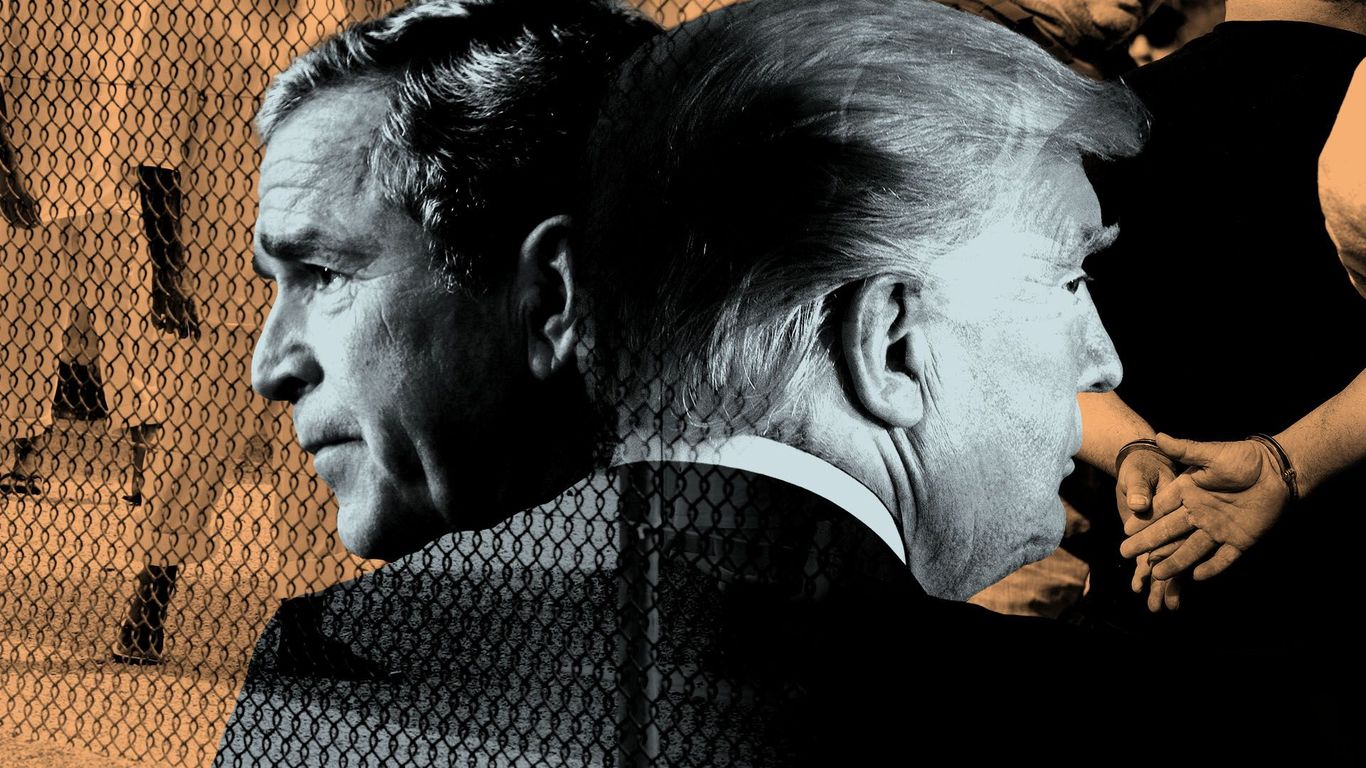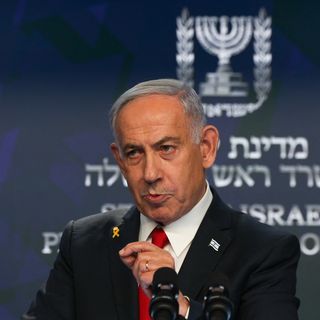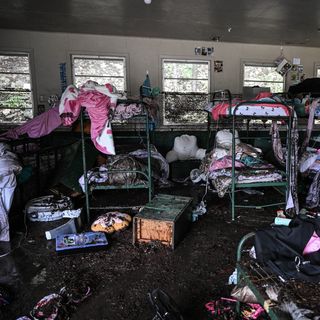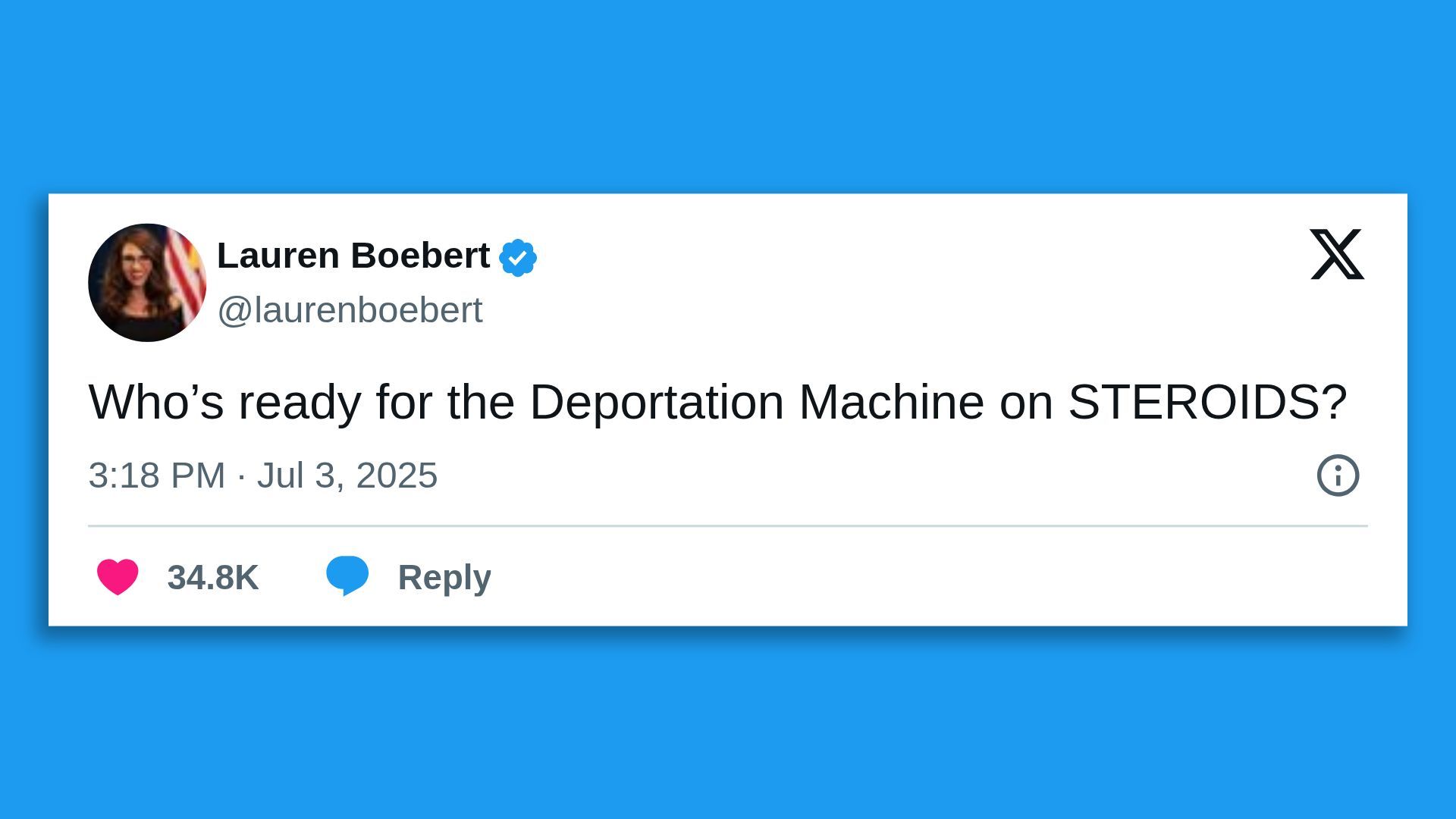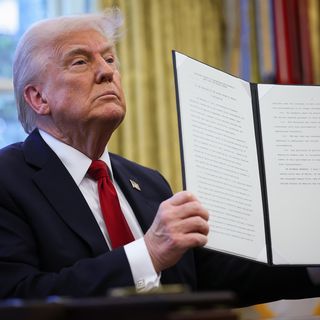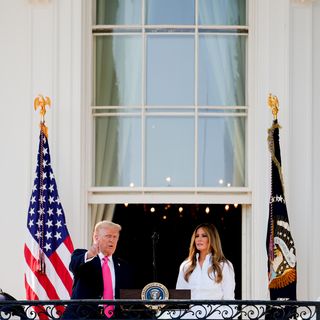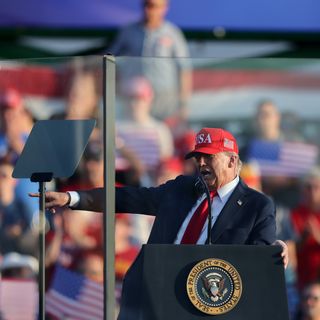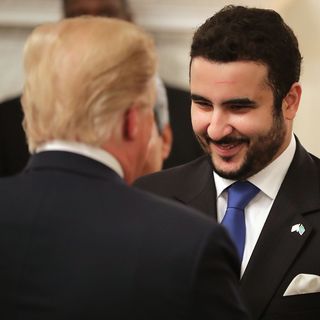Inside Trump's supercharged version of Bush's "War on Terror"
Mass surveillance. Pre-emptive military strikes in the Middle East. Shipping people to domestic and foreign prisons. Citing national security to hide information from the courts. Labeling people as "terrorists" as a political and legal strategy.
Why it matters: Donald Trump became president in part by running against the legacy of George W. Bush, the last Republican in the White House before him. But now Trump is supercharging many of the post-9/11 legal, tactical and political strategies Bush used.
Driving the news: Trump's push to deport "millions" of unauthorized immigrants and his strikes on Iran's nuclear facilities in particular have many parallels to Bush's "War on Terror."
- Trump's sending unauthorized immigrants to high-security prisons in the U.S. and abroad — sometimes denying them due process.
- Bush sent alleged terrorists — including undocumented people in the U.S. — to prisons around the world and the U.S. military facility at Guantanamo Bay, Cuba. The Trump administration is now using "Gitmo" for detainees it says have criminal histories.
- Trump preemptively, and unilaterally, attacked Iran with 14 bunker-buster bombs and launched missiles at an Iranian-backed proxy group in Yemen, killing dozens.
- He said he ordered the first attack out of concern Iran was close to gaining a nuclear weapon. Bush used a similar rationale for invading Iraq, though unlike Trump he got Congress' approval beforehand.
The similarities don't stop there:
- Surveillance: Trump has enlisted tech company and defense contractor Palantir to help surveil and track unauthorized immigrants in the U.S. Bush enlisted telecom companies such as AT&T and Sprint for most of his domestic surveillance in the name of stopping terrorists. Trump's "One Big Beautiful Bill" provides billions to expand such programs. (Palantir told Axios that its software doesn't proactively collect data, and said its work is in accordance with the law.)
- Executive orders: Trump's administration has invoked some of Bush's executive orders made after 9/11 to justify his immigration actions, as Semafor pointed out.
- Rhetoric: Trump has labeled alleged members of Latin American gangs as "terrorists" and "alien enemies" to justify expedited deportations. He has said his administration is focused mostly on "the worst of the worst" — the same phrase Bush's administration used in its anti-terror campaign.
- Courts: Trump and Bush's administrations both concealed information from judges and court hearings using the "state secrets privilege," claiming there would be a national security risk for transparency.
- Habeas corpus: Trump has floated suspending habeas corpus — suspects' right to use the courts to fight unlawful detentions. Bush tried to do that in 2006 before it was overturned by the Supreme Court.
Reality check: There are exceptions to the Trump-Bush parallels.
- Trump's immigration effort is far broader than Bush's, which focused largely on men suspected of having ties to terror groups. Trump's deportation efforts are targeted at millions more noncitizens in communities nationwide.
- Bush was also responding to the trauma of the 9/11 attacks and fearful of another mass attack.
- So far, Trump's attacks against Iran have been far more limited than the government-toppling invasions Bush embarked on.
What they're saying: A spokesperson for Bush declined to comment.
- Trump's team didn't respond to a request for comment.
- "Trump is saying out loud what the Bush administration did behind closed doors," said Vince Warren, executive director of the Center for Constitutional Rights, the first organization to represent detainees sent to Guantanamo Bay after 9/11.
Between the lines: Most Republicans have cheered Trump's aggressive immigration moves, while Democrats have been mostly muted in pushing back, recognizing that Joe Biden's handling of the border cost them politically.
- Some Trump supporters such as Tucker Carlson have criticized the president's military entanglements in the Middle East, given that Trump ran on a promise to avoid getting involved in wars such as those in Afghanistan and Iraq.
- Vice President Vance has said he understands such concerns and told NBC's "Meet the Press" last month that "the difference is that back then we had dumb presidents, and now we have a president who actually knows how to accomplish America's national security objectives. So this is not going to be some long, drawn-out thing."
Flashback: The Bush administration made mistakes in who it detained and accused of links to terrorism in the aftermath of the 9/11 attacks.
- The Bush administration preemptively detained hundreds of Arab and Muslim immigrants in the U.S., and some men were sent to foreign prisons.
- An inspector general report in 2003 said: "Even in the hectic aftermath of the September 11 attacks, we believe the FBI should have taken more care to distinguish between aliens who it actually suspected of having a connection to terrorism," and those "who, while possibly guilty of violating federal immigration law, had no connection to terrorism."

